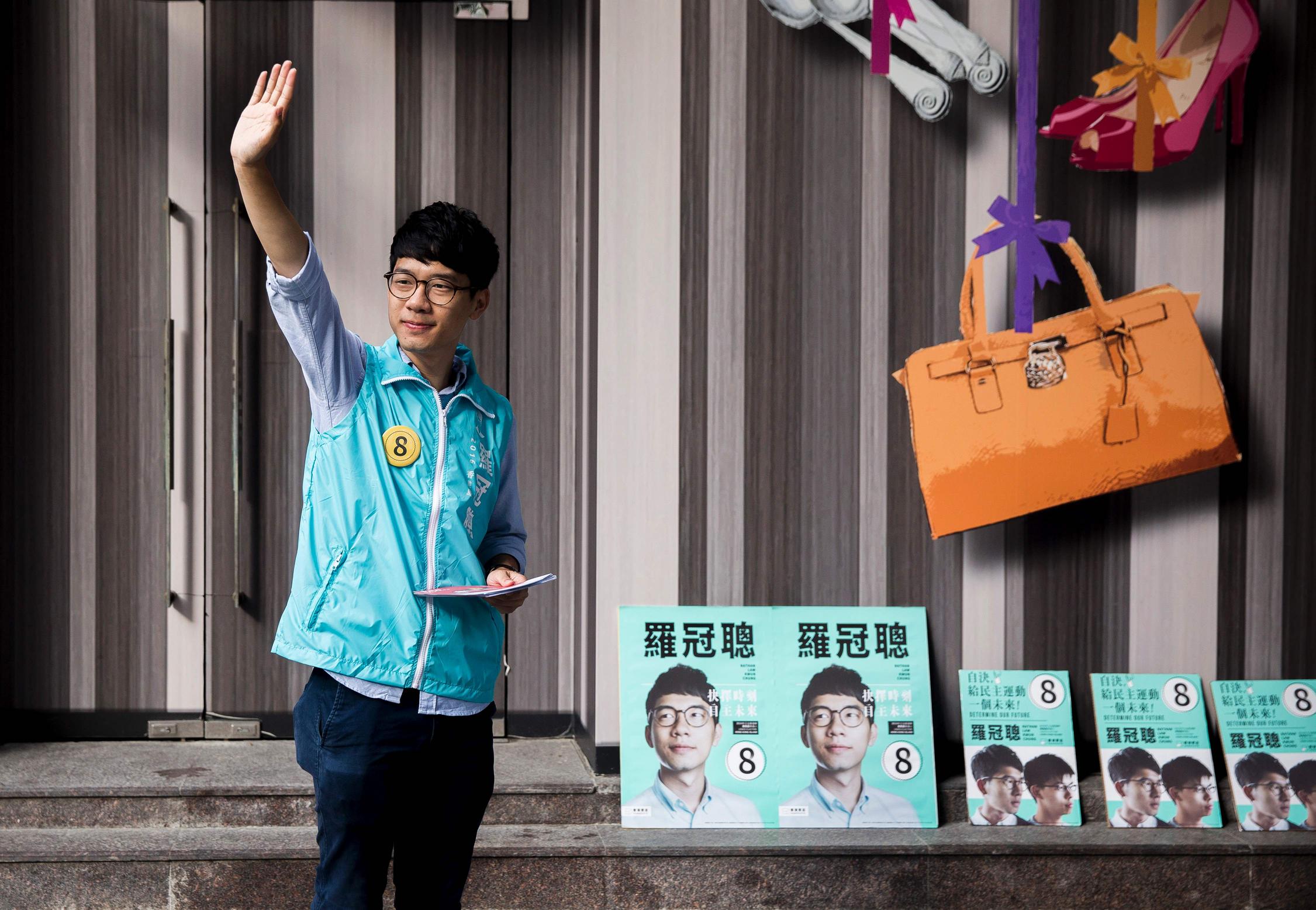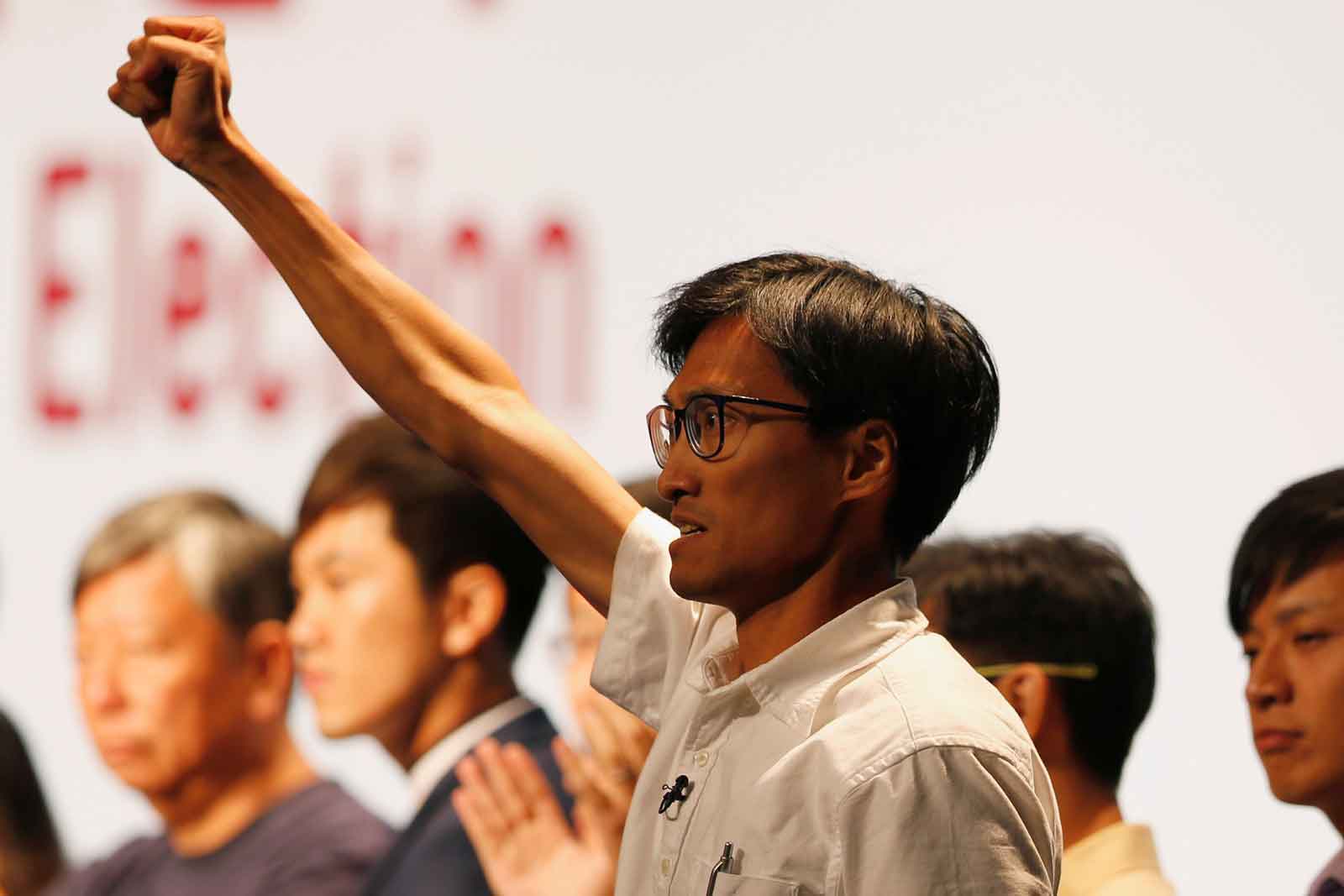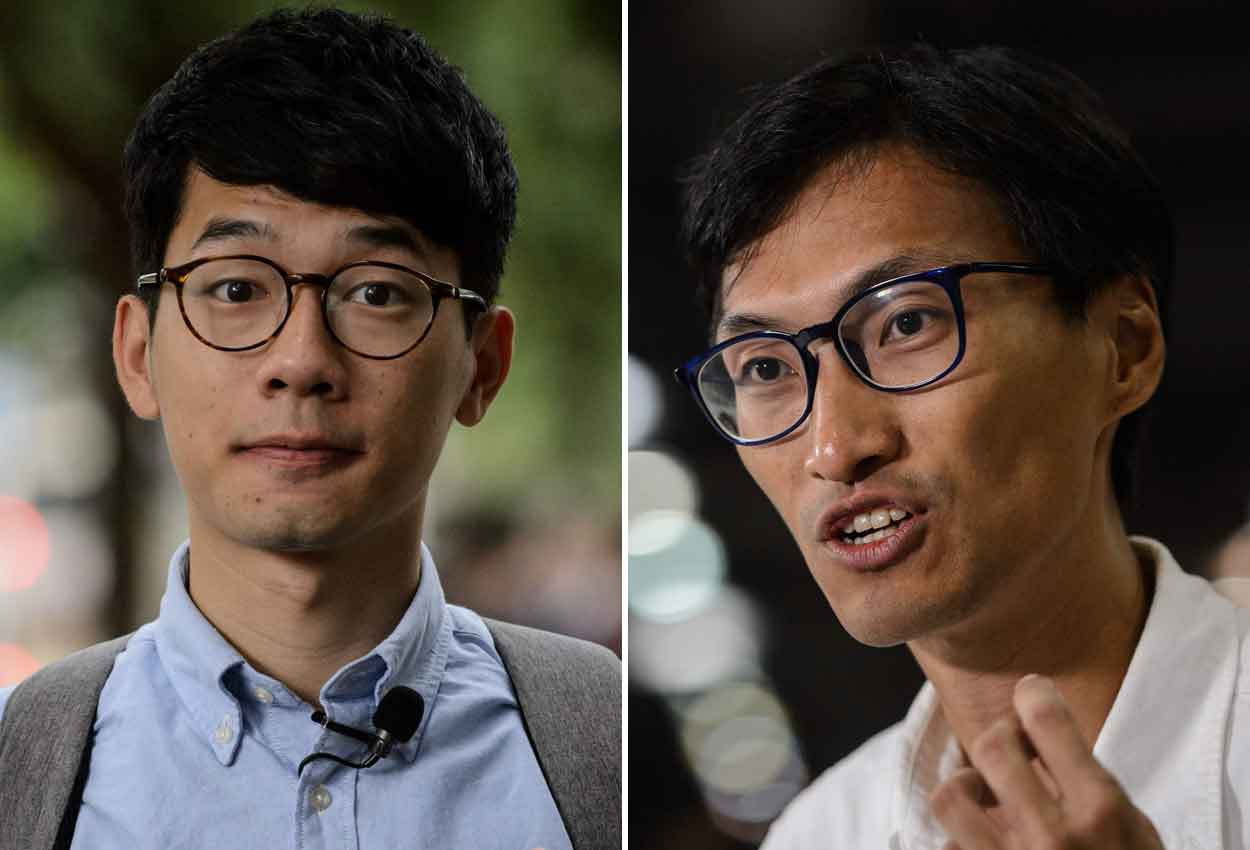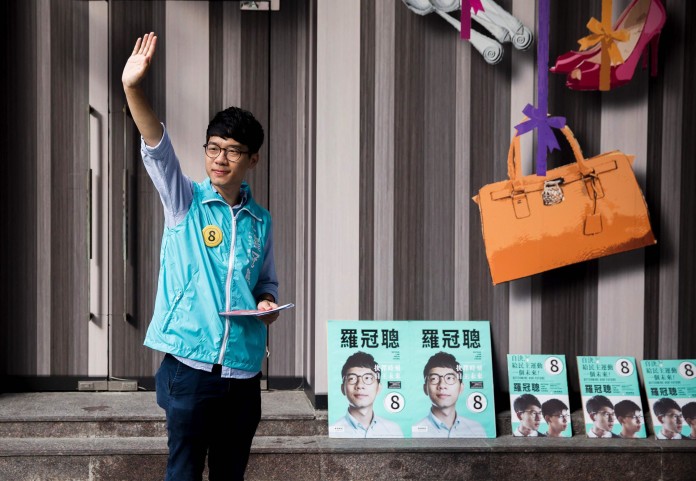In last week’s elections, Hong Kong residents voted into the Legislative Council seven young lawmakers who espouse greater political freedom and a stronger identity for the city. The Straits Times’ Hong Kong correspondent Joyce Lim takes a measure of two of them.
Two years ago, Hong Kong student leader Nathan Law made a name for himself during the Occupy Central protests when he was one of five student representatives to hold talks with Chief Secretary for Administration Carrie Lam.
Last week, the 23-year-old Lingnan University undergraduate was elected to the Legislative Council (Legco), becoming the youngest lawmaker in the city’s history.
“In my past performance (in the Occupy protests), I believe I have shown my ability to talk about policies and to be a very capable legislator,” Mr Law told The Straits Times after his impressive win.
He received 50,818 votes, the second highest in the six-seat Hong Kong Island constituency.
He asked that Hong Kongers continue to watch his performance in the new Legco.
Often seen in a light blue or white shirt with rolled-up sleeves and a backpack, the soft-spoken Mr Law presented a non-threatening image in the run-up to the elections in a slate of 15 candidates.
And that image has apparently worked with young and older voters, given that one in three voters in the constituency is above 60.
Anxious to get to know his constituents better and to devote more time to his work as a legislator, he plans to study part-time instead of full-time for a degree in cultural studies.
He was born in 1993 in mainland China, in Guangdong province’s Shenzhen city, across the border from Hong Kong. In 1999, he moved with his family to Hong Kong, two years after the city was returned to China by its British colonial masters.

He was raised in a blue-collar family that sent him to schools run by Beijing sympathisers, according to Time magazine.
Perhaps it was because what he was taught was different from what he saw – lessons portrayed China’s political system as “uncorrupt and democratic”, which school field trips to the mainland reportedly did not bear out – but he was in the forefront of the 2014 Occupy movement pressing for more political freedoms and greater autonomy for Hong Kong.
The 79-day protests failed and he was in and out of the courts, one of three activists arrested on protest-related charges.
He was sentenced last month to 120 hours of community work after he was found guilty of inciting people to join an unlawful assembly.
In April this year, he co-founded political party Demosisto to continue the pursuit of self-determination and universal suffrage.
“The first thing I will do (as lawmaker) is to propose a referendum law in the Council,” he said. This would pave the way for a referendum to allow Hong Kongers to choose their own future.
He knows it will be tough to get the law passed. But he said he is willing and open to working with the traditional pan-democrats on this. “I can bring new energy, a new vision to the Council. And I have to convince them that I have a long-term vision for Hong Kong. I am mature enough… to talk about policies in the Council.”
Fighting for dignity ‘almost stolen by rich and powerful’

A former investigative journalist, environmentalist and radical social activist, Mr Eddie Chu will soon take on a new role as a lawmaker.
On Oct 1, Mr Chu will be one of 26 new faces who will be sworn into the 70-seat Legislative Council (Legco) or Parliament.
Many were surprised when he garnered 84,121 votes in the New Territories West – the highest number of votes to be won by a candidate across all five geographical constituencies – at last week’s Legco elections.
But the 38-year-old independent candidate, whose low-cost campaign featured hand-painted banners, started his political and social activism a decade ago.
Hong Kongers first came to know of him in 2006 when he camped at a construction site at the iconic Star Ferry Pier in Edinburgh Place, in an attempt to prevent the demolition of the pier. His protest failed and Star Ferry Pier, together with the nearby Queen’s Pier, was demolished to make way for a shopping mall and a road.
During the fight to save Queen’s Pier, Mr Chu had told then-Secretary for the Development Bureau Carrie Lam: “I have to keep this place for the next generation because I need to tell them a different story of Hong Kong.
“My Hong Kong is not a fishing village-turned-financial centre in which the laws of the jungle apply.”
He noted this in his election campaign leaflet, adding: “My Hong Kong is a free city where people join forces to retain our dignity, which is almost stolen by the rich and powerful.” The campaign saw him raising issues, from self-determination to preserving Hong Kong’s heritage, to unjust land use.
But what has appeared closest to the heart of the former freelance journalist, who has covered news in Iran and war-torn Afghanistan, is the issue of rich and influential developers changing the landscape of the city where he was born and grew up in, at the expense of the people and the environment.
In the past 10 years, he has led several campaigns and was often seen on the front line protesting against what he deemed as unjust land use, illegal dumping of waste in the New Territories and overspending on the high-speed rail project.
In 2010, he knelt and walked in turns with a group of villagers in protest against their having to relocate their homes for the construction of the Guangzhou-Shenzhen-Hong Kong Express Rail Link project. In 2014, he joined the Occupy Central movement.
With his authority as a lawmaker, he wants to challenge and reform the Heung Yee Kuk, a statutory advisory body in the New Territories dominated by the pro-Beijing elite and landlords, which is widely accused of corruption and anti-environmental practices.
“I will use my skills as an investigative journalist to expose all the wrongdoings of these people…
“I will use the support of 80,000 Hong Kong voters to push for an immediate reform of Heung Yee Kuk and the rural system,” said Mr Chu, who has received death threats allegedly linked to his declaration of war on the powerful body.

This article was first published on Sep 12, 2016.
Get a copy of The Straits Times or go to straitstimes.com for more stories.






















